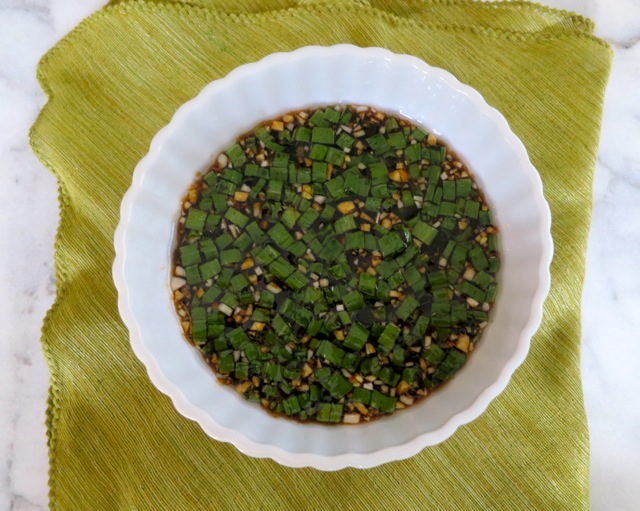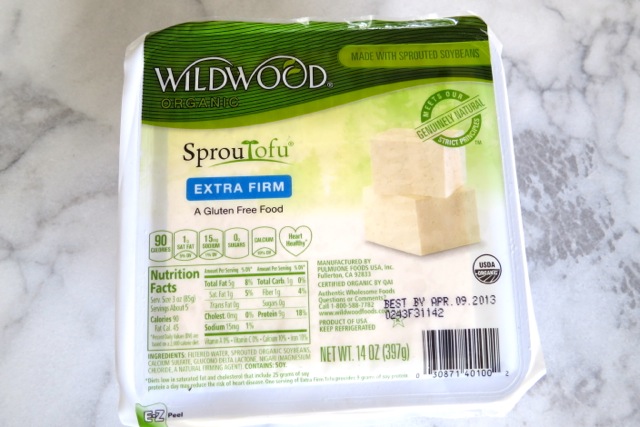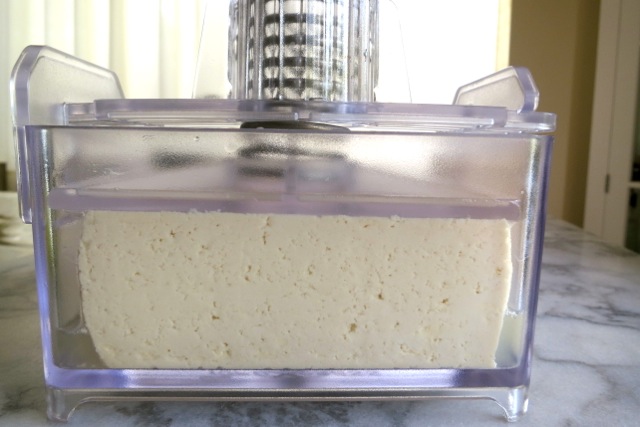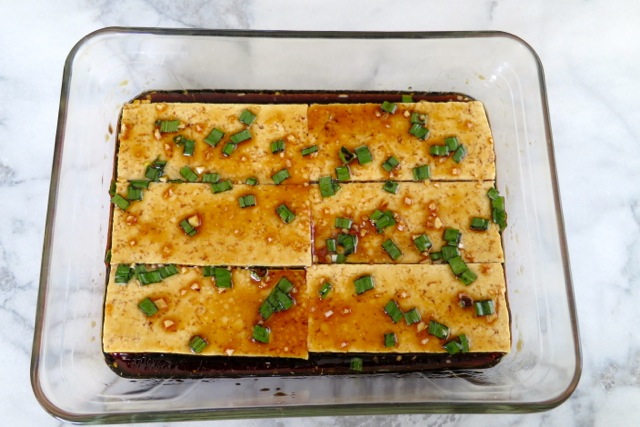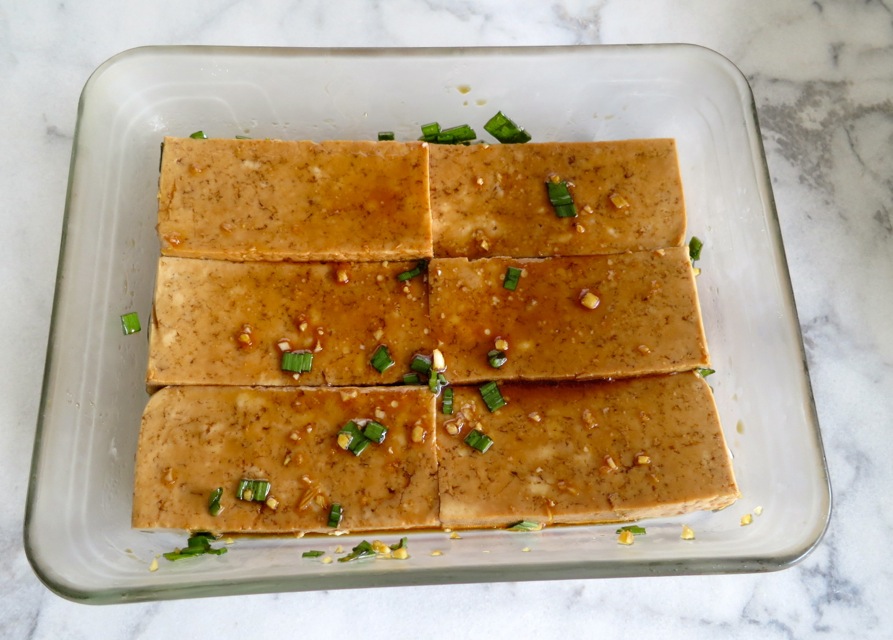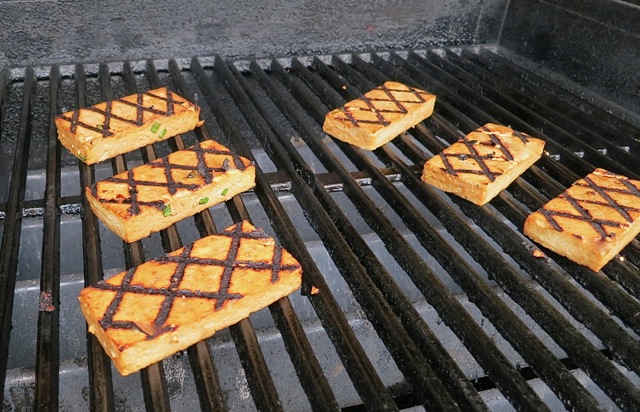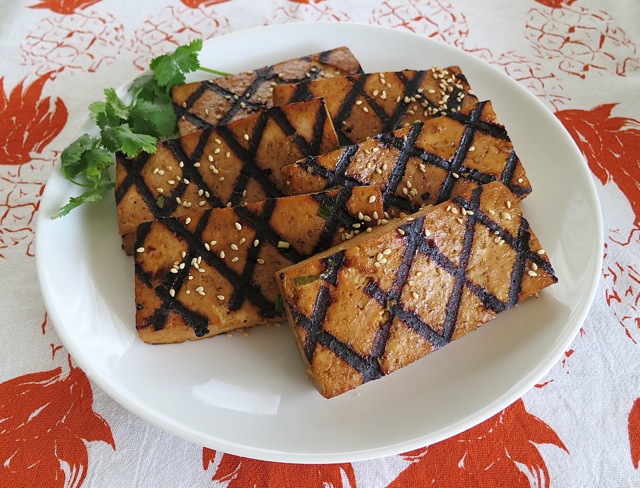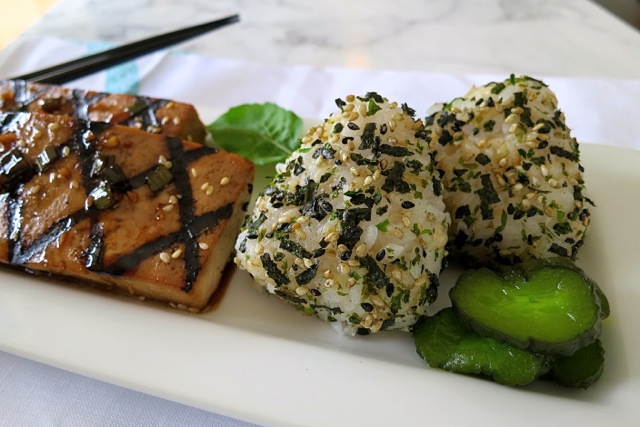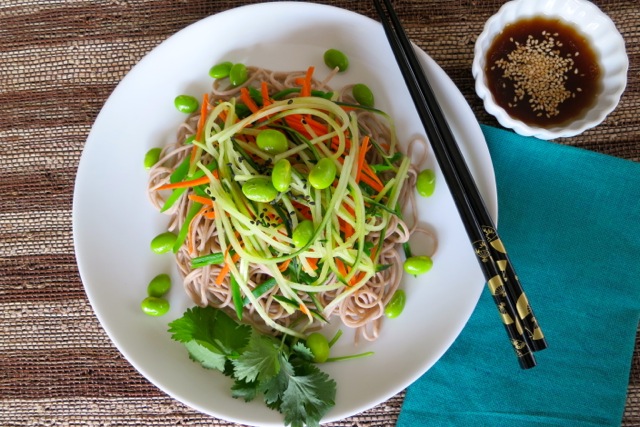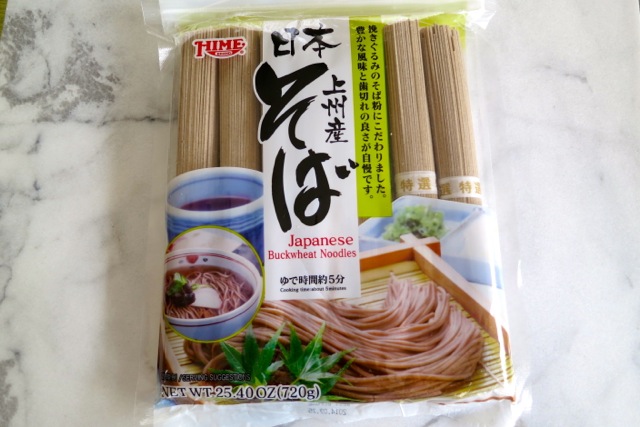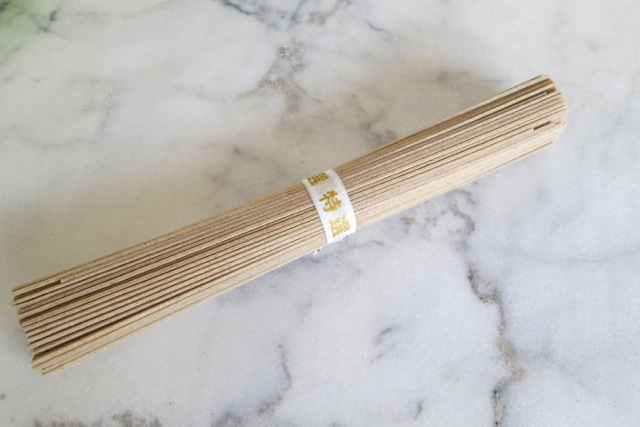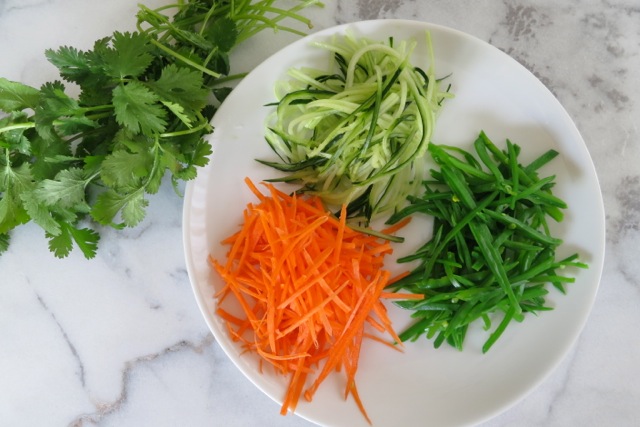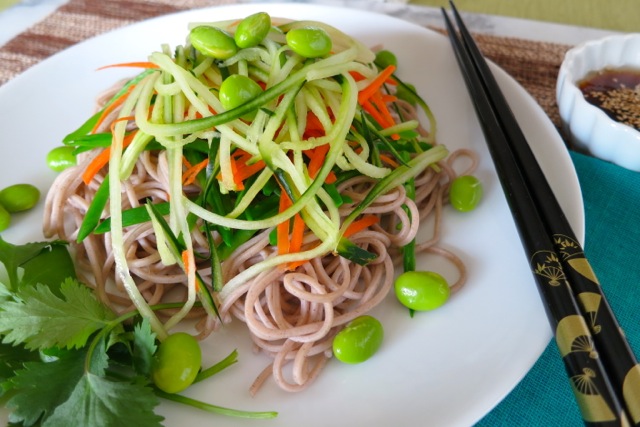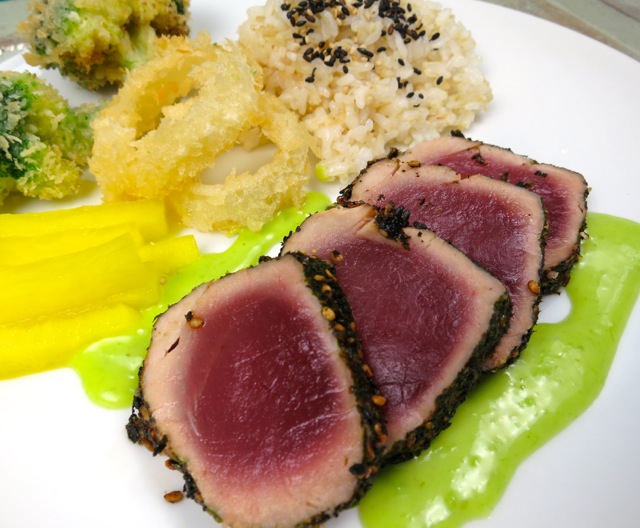 Every now and then I have a craving for ahi tuna, either as sashimi or seared. Although Hawaii has an abundance of fresh fish, it’s not always available at the markets. Most of the premium fish is sold to restaurants who then charge premium prices. But don’t get me wrong. You’ll never have to drag me out of the house to go out to dinner. I’m always available.
Every now and then I have a craving for ahi tuna, either as sashimi or seared. Although Hawaii has an abundance of fresh fish, it’s not always available at the markets. Most of the premium fish is sold to restaurants who then charge premium prices. But don’t get me wrong. You’ll never have to drag me out of the house to go out to dinner. I’m always available.
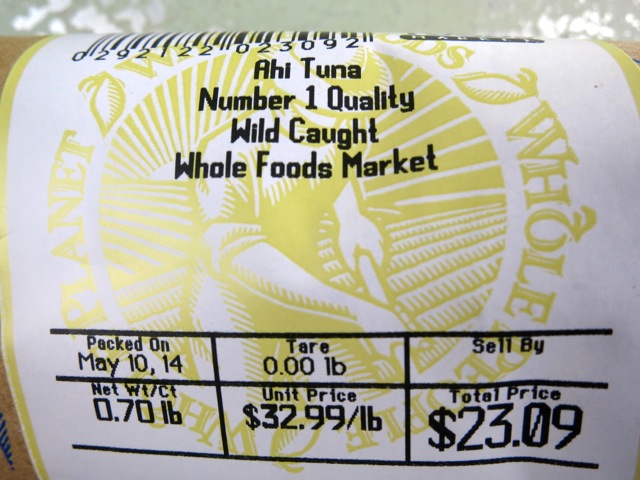 Our local Whole Foods market has a small seafood section that I normally don’t pay much attention to. Instead, I head to the meat department to check out their wonderful steaks. One day as I was shopping, I noticed beautiful sashimi grade ahi blocks at the seafood counter. I couldn’t resist buying one, even though I paid dearly for it. John sliced the ahi into perfect pieces and we enjoyed it sashimi-style with wasabi soy sauce. It was delicious. So now when I go to Whole Foods, I pay more attention as I walk by their seafood section. If I see beautiful ahi, I buy it.
Our local Whole Foods market has a small seafood section that I normally don’t pay much attention to. Instead, I head to the meat department to check out their wonderful steaks. One day as I was shopping, I noticed beautiful sashimi grade ahi blocks at the seafood counter. I couldn’t resist buying one, even though I paid dearly for it. John sliced the ahi into perfect pieces and we enjoyed it sashimi-style with wasabi soy sauce. It was delicious. So now when I go to Whole Foods, I pay more attention as I walk by their seafood section. If I see beautiful ahi, I buy it.
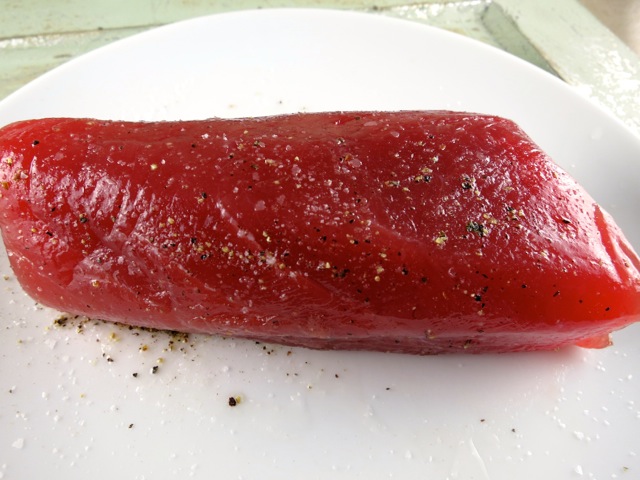 In Hawaii, everyone has their favorite ways of preparing this luscious fish. Here is one of mine. I coat the ahi with a bit of canola oil, season it with kosher salt and freshly ground pepper, then dredge it in furikake. There are no measurements for this simple dish, just a short list of ingredients.
In Hawaii, everyone has their favorite ways of preparing this luscious fish. Here is one of mine. I coat the ahi with a bit of canola oil, season it with kosher salt and freshly ground pepper, then dredge it in furikake. There are no measurements for this simple dish, just a short list of ingredients.
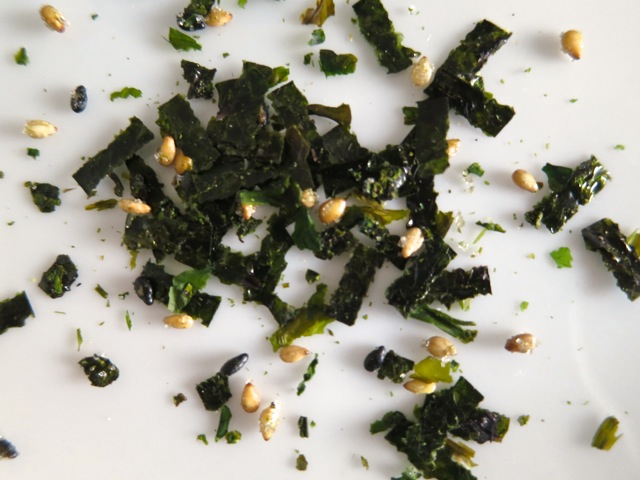 Furikake? Delicious sprinkled over hot rice. My favorite furikake is simple. Seaweed, white and black sesame seeds and a bit of seasoning.
Furikake? Delicious sprinkled over hot rice. My favorite furikake is simple. Seaweed, white and black sesame seeds and a bit of seasoning.
Serves 2
Ingredients
about 3/4 pound sashimi grade ahi block
canola oil
kosher salt
freshly ground black pepper
Kikkoman wasabi sauce or a mixture of wasabi paste and soy sauce
Preparation
Lightly coat the ahi with canola oil and season with kosher salt and freshly ground black pepper. Sprinkle a generous amount of furikake over the ahi, pressing gently to coat all 4 sides well.
Place a small sauté pan over medium-high heat. Add 2 – 3 teaspoons of canola oil and swirl to coat the pan. Once the pan is hot and you see a few wisps of smoke, add the ahi block to the pan and sear about 1 minute per side, or until desired doneness is reached. The ahi should be rare in the center.
Remove ahi to a cutting board. Let rest for a few minutes then slice ahi into 1/3 inch thick pieces. Serve with wasabi sauce or wasabi soy sauce, a bowl of steaming rice and homemade takuan.

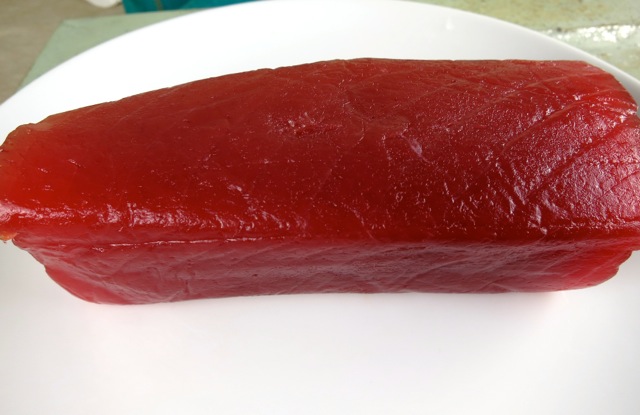
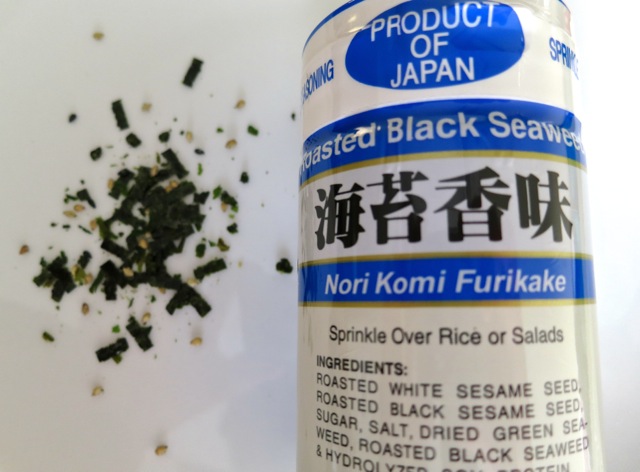
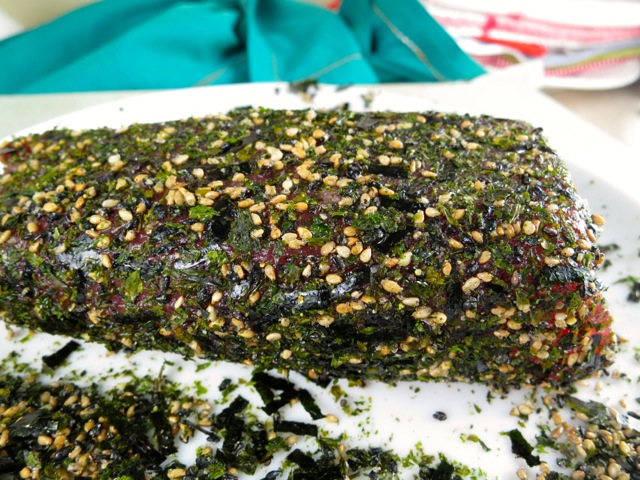
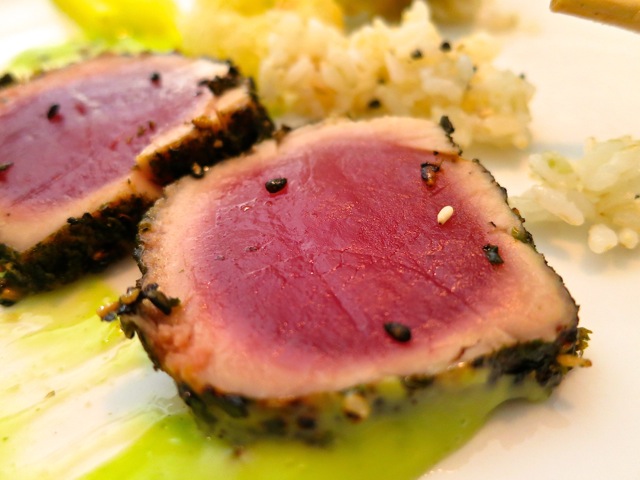
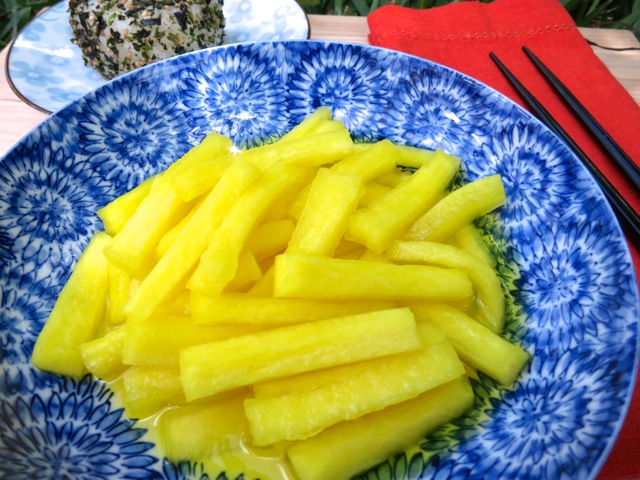
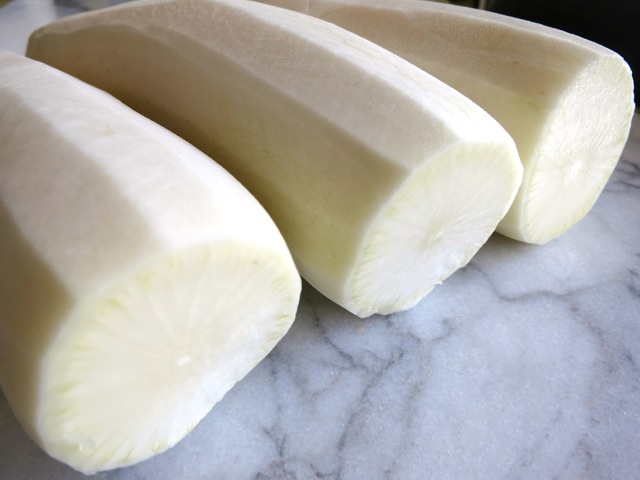
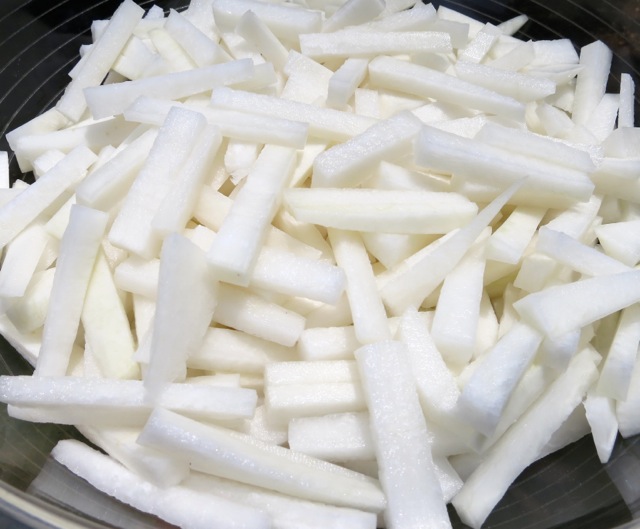
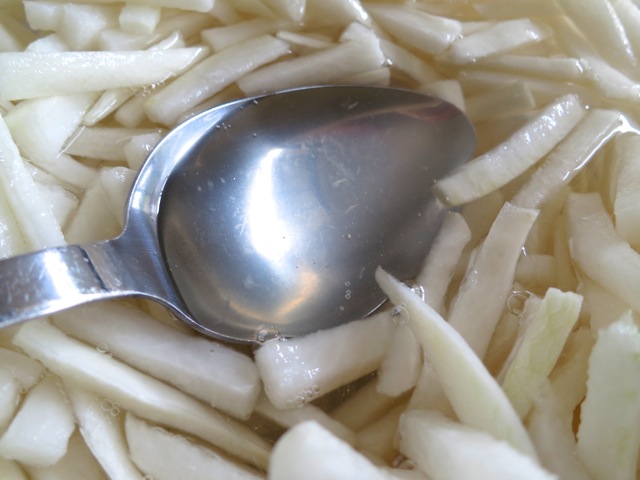
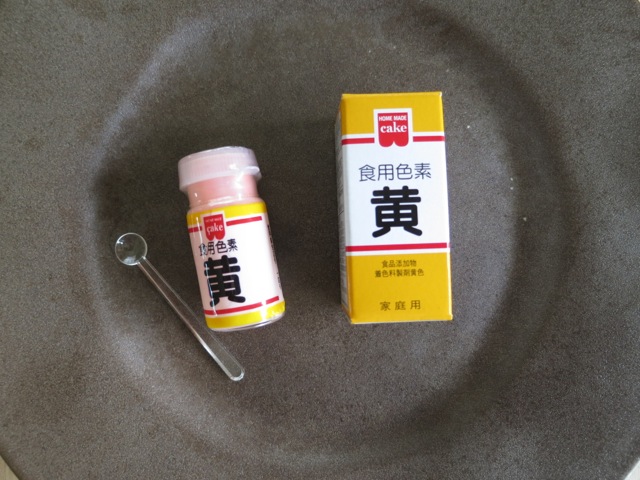

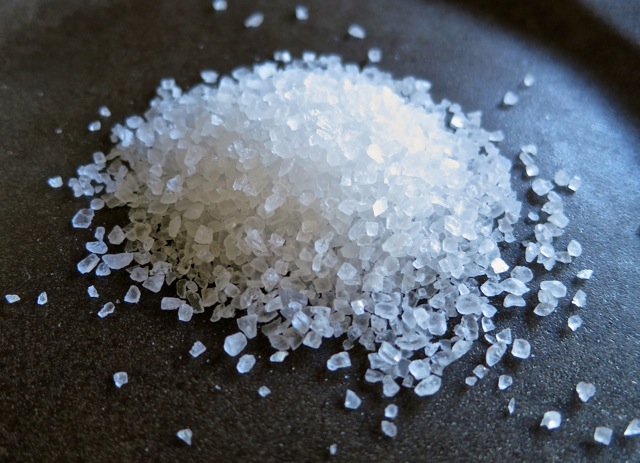
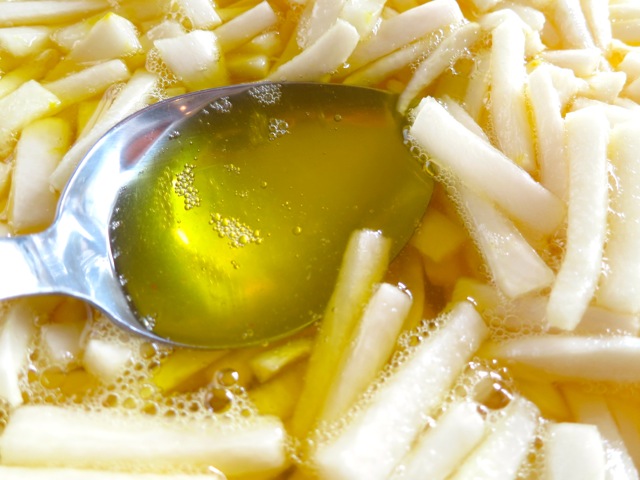
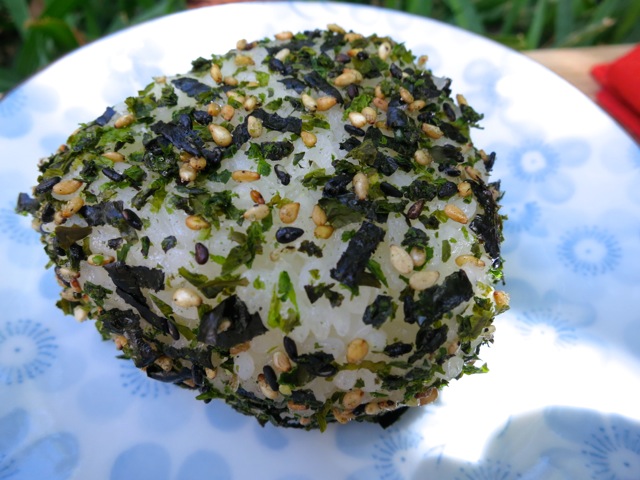
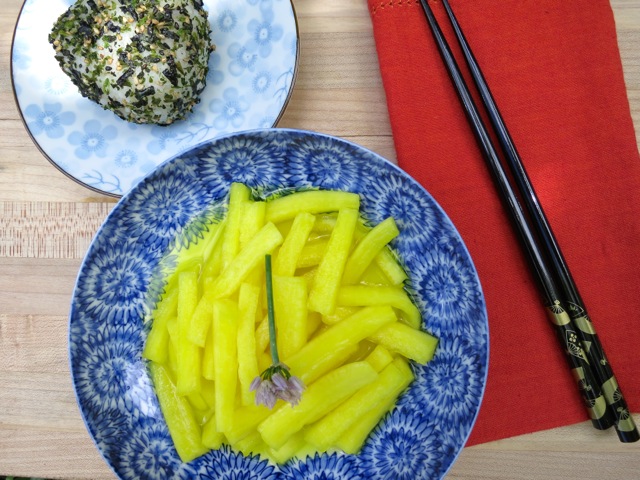
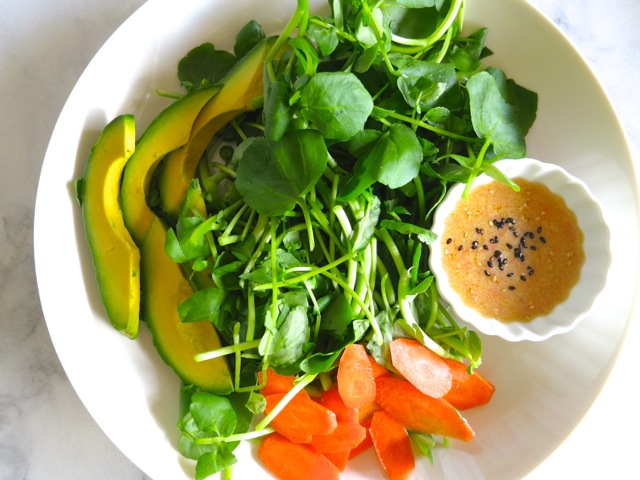
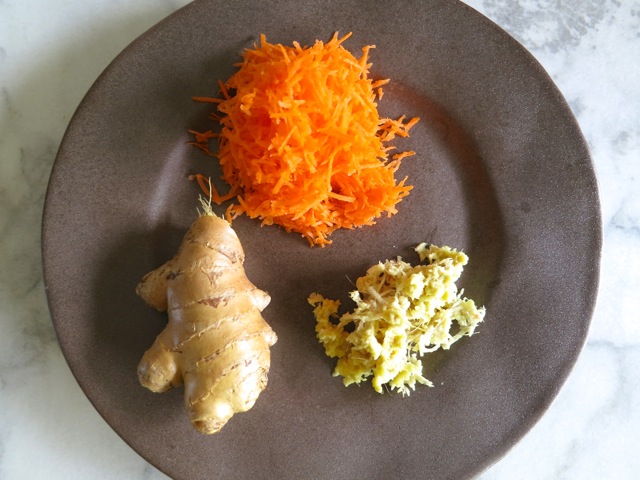
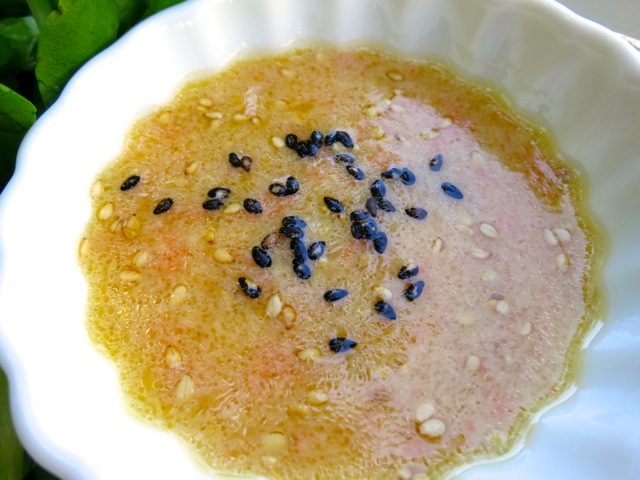
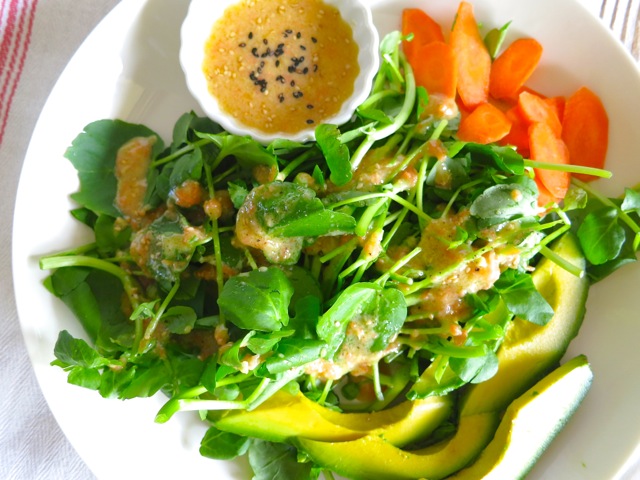
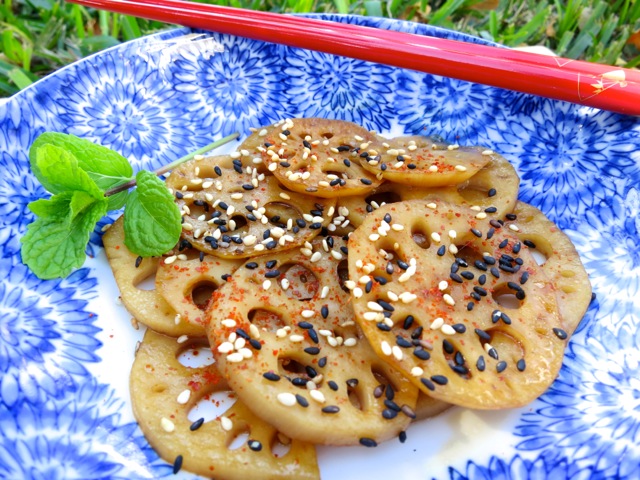
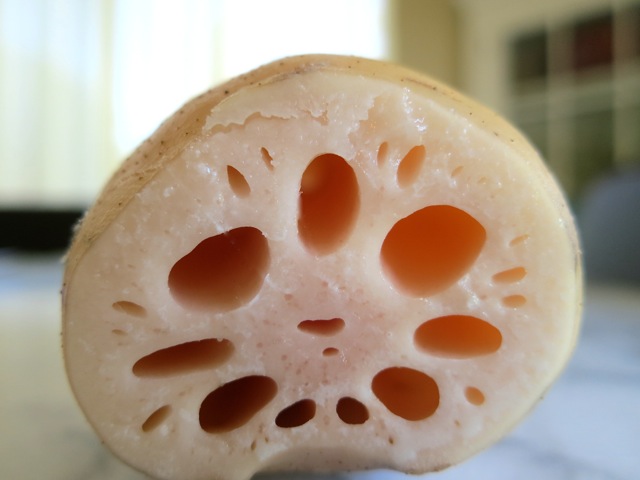
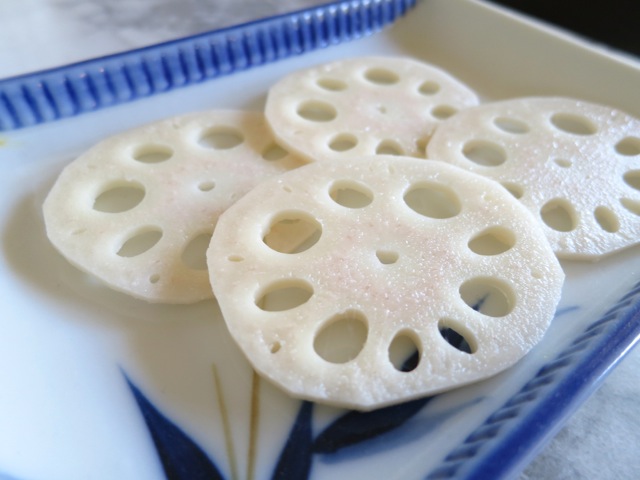
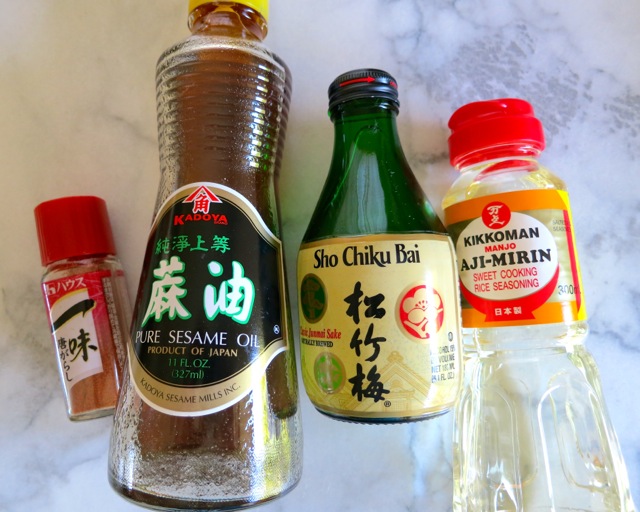
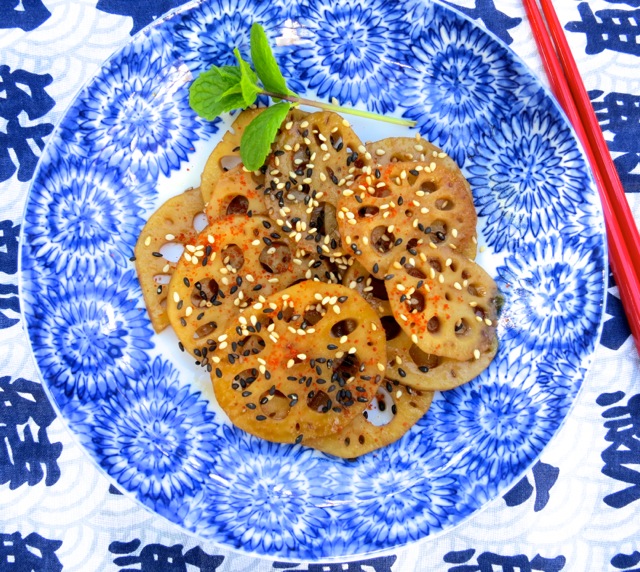
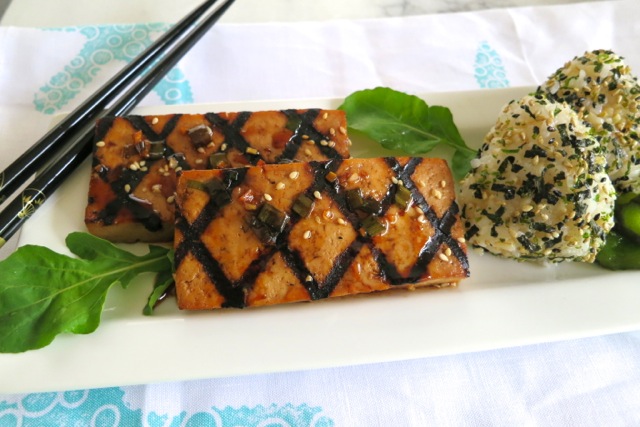 Grilling is a terrific way to prepare most any food, even tofu. There’s something about the subtle smoky flavor that can transform whatever you are grilling into a spectacular meal. And, in particular when teriyaki sauce is involved.
Grilling is a terrific way to prepare most any food, even tofu. There’s something about the subtle smoky flavor that can transform whatever you are grilling into a spectacular meal. And, in particular when teriyaki sauce is involved.